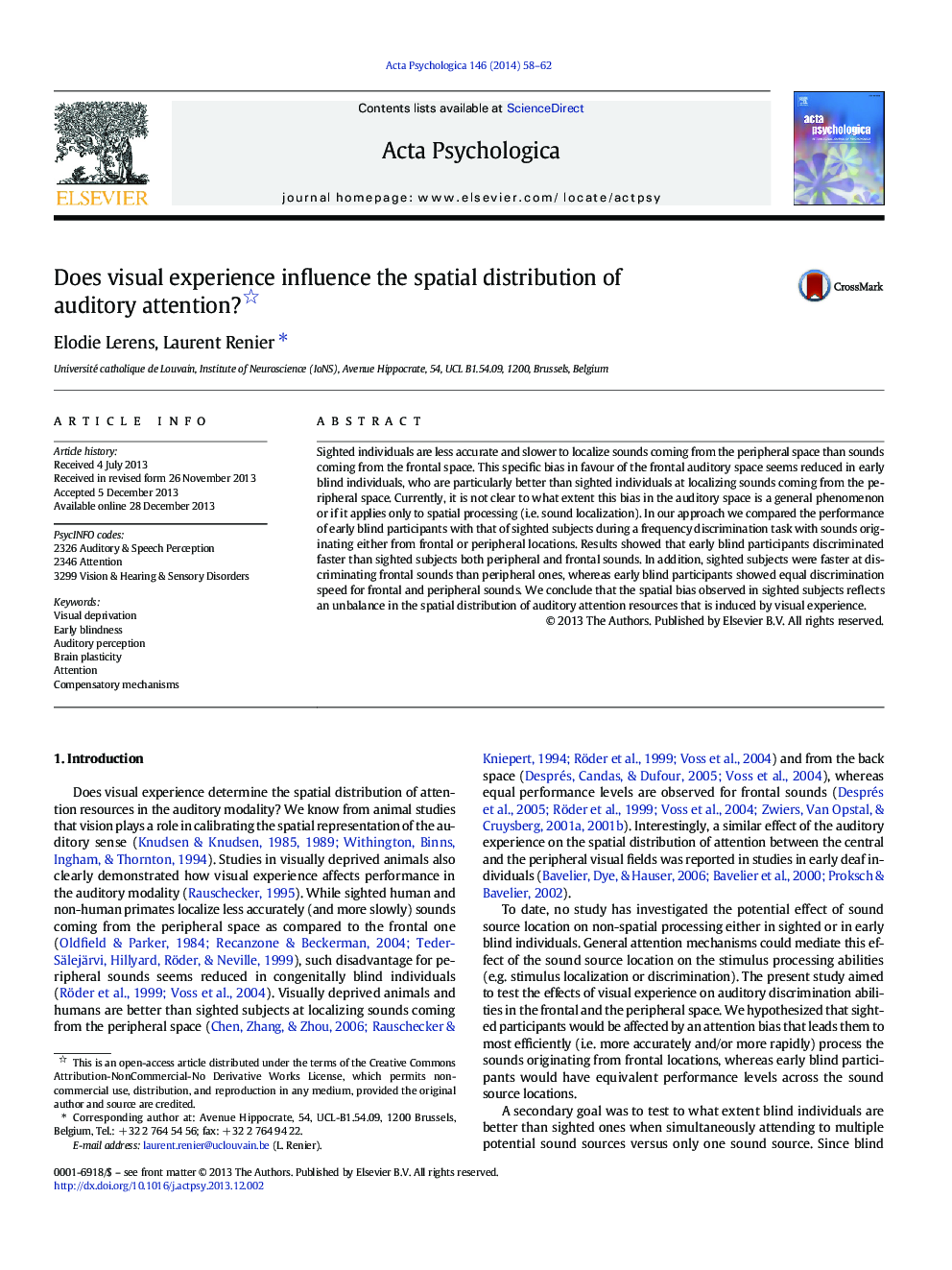| Article ID | Journal | Published Year | Pages | File Type |
|---|---|---|---|---|
| 7278005 | Acta Psychologica | 2014 | 5 Pages |
Abstract
Sighted individuals are less accurate and slower to localize sounds coming from the peripheral space than sounds coming from the frontal space. This specific bias in favour of the frontal auditory space seems reduced in early blind individuals, who are particularly better than sighted individuals at localizing sounds coming from the peripheral space. Currently, it is not clear to what extent this bias in the auditory space is a general phenomenon or if it applies only to spatial processing (i.e. sound localization). In our approach we compared the performance of early blind participants with that of sighted subjects during a frequency discrimination task with sounds originating either from frontal or peripheral locations. Results showed that early blind participants discriminated faster than sighted subjects both peripheral and frontal sounds. In addition, sighted subjects were faster at discriminating frontal sounds than peripheral ones, whereas early blind participants showed equal discrimination speed for frontal and peripheral sounds. We conclude that the spatial bias observed in sighted subjects reflects an unbalance in the spatial distribution of auditory attention resources that is induced by visual experience.
Keywords
Related Topics
Life Sciences
Neuroscience
Cognitive Neuroscience
Authors
Elodie Lerens, Laurent Renier,
